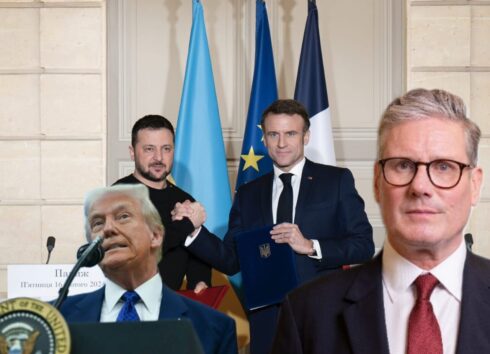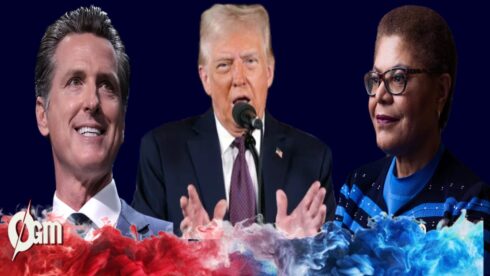U.S. President Donald Trump has accused U.K. Prime Minister Keir Starmer and French President Emmanuel Macron of failing to take effective action to end the ongoing war in Ukraine. Speaking ahead of their scheduled visits to Washington next week, Trump claimed that both leaders “haven’t done anything” to resolve the conflict, asserting that Russia only engaged in negotiations due to his own diplomatic efforts.
The former U.S. president’s remarks have sparked controversy among European allies, who have been actively supporting Ukraine since Russia’s full-scale invasion in 2022. The U.K., France, and other European nations have provided extensive military aid, including weapons and financial support, to Kyiv. However, Trump’s comments suggest a stark divergence in perspectives on the role of European nations in the war.
Tensions Escalate as Trump Questions Zelensky’s Role
In addition to his criticism of European leaders, Trump also targeted Ukrainian President Volodymyr Zelenskyy, suggesting that he has been ineffective in peace negotiations. He controversially stated that Zelenskyy “has no cards” to negotiate, implying that Ukraine bears some responsibility for the war. Trump further claimed that peace talks between Russia and Ukraine would be impossible without his direct involvement.
These remarks have strained relations between the U.S. and its European allies, particularly after reports that Ukraine and European nations were not included in high-level U.S.-Russia discussions held in Saudi Arabia. Despite Trump’s assertions, European leaders have maintained a firm stance on supporting Ukraine while rejecting negotiations with Russian President Vladimir Putin on his terms.
Starmer and Macron’s Proposed Military Plan for Ukraine
Contrary to Trump’s accusations, European leaders have been developing new strategies to support Ukraine. Reports indicate that Starmer and Macron are working on a plan to deploy European troops to strategic locations in Ukraine to deter further Russian aggression. The proposal includes stationing fewer than 30,000 troops at critical infrastructure sites, supported by Western air and naval forces.
However, this initiative faces significant challenges. Russia has strongly opposed the deployment of Western troops in Ukraine, warning of severe consequences. Additionally, some European leaders remain skeptical about direct military involvement, fearing it could escalate the conflict rather than resolve it. Despite these hurdles, Starmer has expressed willingness to commit British forces if a durable peace agreement is reached, underscoring the necessity of a U.S. security guarantee.
Trump’s Contradictions: Criticism and Praise for European Leaders
Despite his harsh criticism, Trump also extended some praise to both Macron and Starmer in a recent interview with Fox News. He referred to Macron as a “friend” and described Starmer as a “very nice guy.” This mixed messaging has led to confusion over his actual stance on European leadership in the Ukraine conflict.
European leaders have regularly met to discuss the war and coordinate military and financial aid for Kyiv. Earlier this year, Starmer signed a long-term defense pact with Zelenskyy, pledging U.K. support for Ukraine’s security even beyond the current war. Meanwhile, Macron has been at the forefront of diplomatic efforts, advocating for increased European military assistance and strategic planning to counter Russian threats.
The Future of U.S.-European Relations on Ukraine
As Starmer and Macron prepare for their visits to Washington next week, their meetings with Trump are expected to focus on the Ukraine crisis and potential pathways to peace. While European leaders push for a more inclusive and strategic approach to negotiations, Trump’s rhetoric suggests he may pursue a more unilateral diplomatic route, potentially sidelining Ukraine and its European allies in favor of direct talks with Russia.
With the war in Ukraine showing no signs of immediate resolution, the upcoming discussions in Washington could be pivotal in shaping the next phase of international efforts to address the conflict. The divisions between Trump and European leaders highlight the complexities of global diplomacy, with significant implications for U.S.-European relations and Ukraine’s future.














